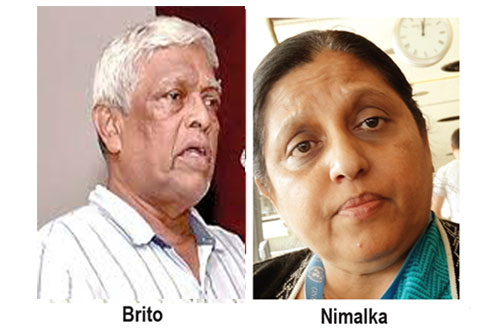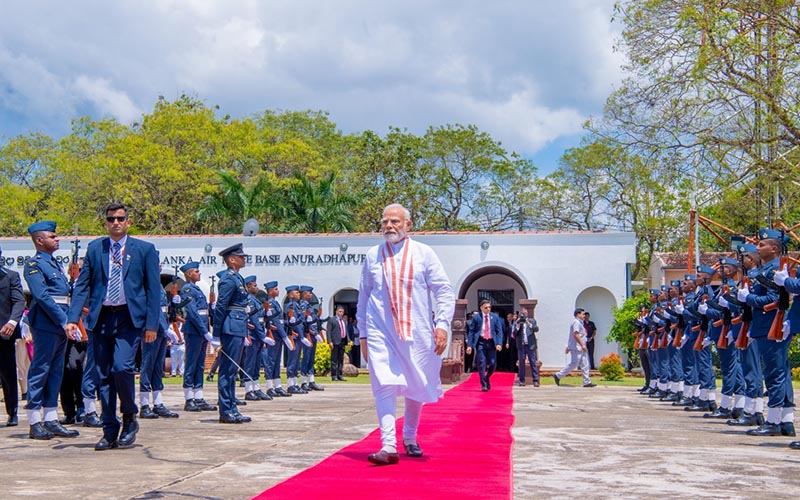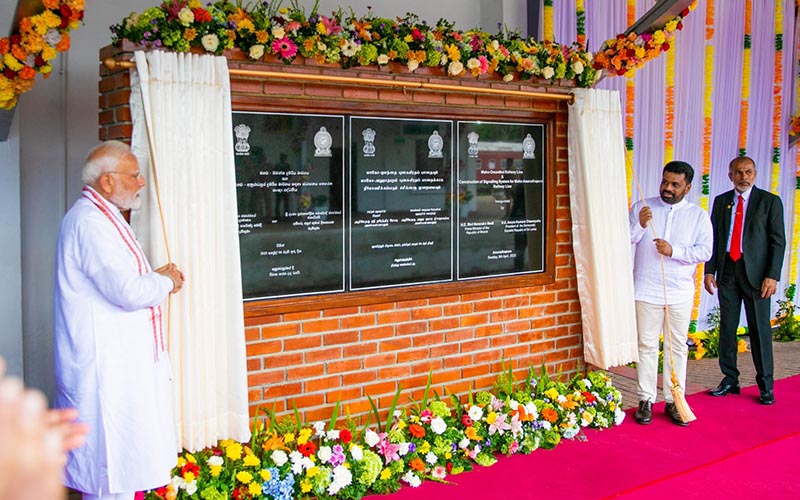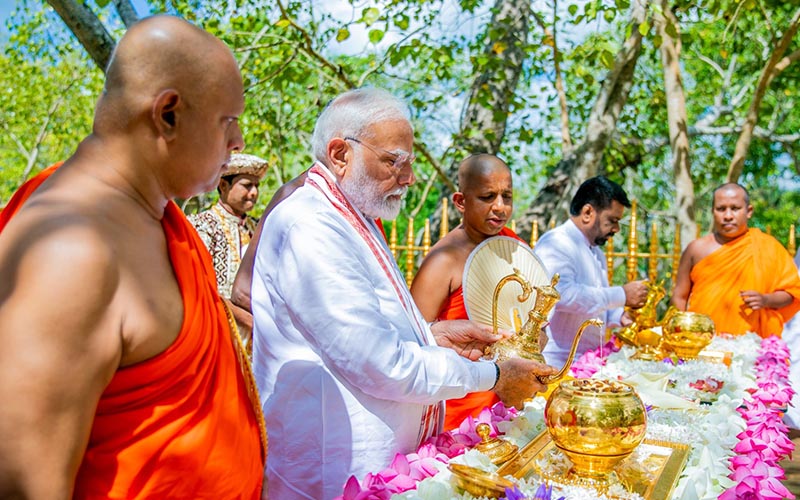News
20A weakened domestic mechanisms, says Civil Society Platform

The Civil Society Platform (CSP) says President Gotabaya Rajapaksa’s call for a dialogue between his government and the expatriate Tamils is not realistic. President Rajapaksa made the declaration in talks with UN Secretary General Antonio Guterres. CSP says an environment conducive for such an initiative is not available at the moment.
Dr. Ms. Nimalka Fernando was a member of the Office on the Missing Persons (OMP) from 2018-2021 and Brito Fernando, Chairperson of Families of the Disappeared in Sri Lanka issued the following statement in response to The Island query:
“When Sri Lanka co-sponsored the UNHRC Resolution 30/1 in Oct 1, 2015, the then Foreign Minister the late Mangala Samaraweera, informed the Human Rights Council that the Government would initiate a domestic mechanism after consulting the victims and survivors.
The Government established a Secretariat to Coordinate Reconciliation Mechanisms (SCRM) to coordinate the domestic mechanisms. After a lengthy public consultation process,conducted by Consultation Task Force on Reconciliation Mechanisms, chaired by the late Ms. Manouri Muttetuwegama, a comprehensive report was published.
Based on the recommendations of the Task Force, domestic or internal mechanisms were established. Office on Missing Persons (OMP) was established for truth seeking, while Office for Reparations (OR) was created to address the issue of Reparations. The independence of these institutions had been guaranteed as appointments to these mechanisms were done by the President, based on the recommendations of the Constitutional Council created by the 19th Amendment to the Constitution.
Those were the steps taken to establish credible domestic mechanisms.
The present government distanced itself from the UNHRC Resolution 30/1 in March 2020. It dissolved the Secretariat to Coordinate Reconciliation Mechanisms. The government continues to maintain two domestic mechanisms created under the UNHRC resolution 30/1. However, the enactment of the 20th Amendment to the Constitution has impacted on the very nature of the independence of the two existing domestic mechanisms with the Constitutional Council being replaced by the Parliamentary Council.
The appointment of members to these mechanisms are now vested in the President in his discretion. The Parliamentary Council can only direct observations related to the nominees given by the President. Thus the independence of the two mechanisms are seriously compromised and the confidence of victims and survivors, which is of paramount importance for the success of any mechanism, has eroded.
According to the statement by the PMD, the President has said that the internal issues of Sri Lanka should be resolved through an internal mechanism of the country and he has further said that the Tamil Diaspora would be invited for discussions in this regard. The previous government has engaged with the Tamil diaspora groups as stakeholders of the domestic reconciliation process. However, in February 2021, Secretary to the Ministry of Defence has proscribed seven prominent organisations of Tamil diaspora including the Global Tamil Forum, British Tamil Forum and Canadian Tamil Congress, and hundreds of individuals, by listing them under the United Nations Act No. 45 of 1968.
Some of the individuals and organisations have been actively engaged in building the domestic reconciliation mechanisms in Sri Lanka during the previous government. While appreciating the President for extending an invitation for dialogue to the Tamil diaspora organisations, we note that continuation of the proscription of organizations and individuals is counterproductive to achieve this goal. Wouldn’t it be necessary to take steps to delisting these individuals and organisations in order to facilitate the genuine engagements and dialogue?
Civil Society Platform has noted the President’s assurance of continued engagement with civil society organisations to bring about development and reconciliation in the country. However, this policy has to be reflected at the grass-root level. We have credible reports where civil society organisations working at community level with victims and survivors are subjected to surveillance and harassment. It is important that the Government and the civil society agree on issues of common concern in order to have a meaningful dialogue with an aim to achieve deliverable targets in achieving reconciliation and development.
We note with concern the statement of the President referring to issuing death certificates to the families of the missing and the disappeared. Prior to providing them with the death certificates it is important that circumstances related to the disappearances be investigated based on the information provided by families. Further information is also available in the previously appointed Presidential Commissions of Inquiry including the Lessons Learnt and Reconciliation Commission (LLRC) and Paranagama Commission. It is the responsibility of the State to account for each individual who has disappeared. The basic principle of accountability is linked to ascertaining the truth related to the disappearance. The issuance of death certificates is a complex issue. Even families in the south whose loved ones disappeared in the 1989 era are contesting the death certificates they have received. It is a grieving community that requires an honest and credible process. If we are honest about what happened, then healing becomes easier. If we hide information the scars will remain forever, festering.
The government has failed to even facilitate the granting of the interim-relief of Rs 6000/- approved in October 2019 by the previous government as recommended by the interim recommendations of the OMP. No doubt the government is presently developing a compensation package. But the families need the interim relief very badly. They too have been affected by the Covid-19 pandemic. Requests made to the authorities to include the families of the disappeared too under the Covid-19 relief package have gone unanswered. Letters sent to the Ministry of Justice, which is the line ministry responsible for the payment of Rs 6000/- remains unanswered.
We believe that the Civil Society Organisations and NGOs can be partners in development and reconciliation. Historically, we have been engaged with every government and we are willing to engage with this government too. But, we need to do so, maintaining our independence and remaining as a critical mass affirming the principles of Freedom of Expression, Freedom of Assembly and Freedom of Association.”
Latest News
Indian Prime Minister Shri Narendra Modi concludes State Visit to Sri Lanka

Indian Prime Minister Shri Narendra Modi departed today (06) from Air Force Base Anuradhapura concluding his State visit to Sri Lanka. The Indian Premier embarked on a tour to Sri Lanka at the invitation from President Anura Kumara Disanayake.
This visit underscores the enduring relationship encapsulated by the theme “Friendship of Centuries, Commitment to a Prosperous Future,” further solidifying the bonds between India and Sri Lanka.
This marks Prime Minister Modi’s fourth visit to Sri Lanka, which has further enhanced the economic, cultural, and historical relations between the two nations, while also reinforcing their multifaceted partnership. This visit by the Indian Prime Minister reinforces Sri Lanka’s important role in India’s “Neighbourhood First Policy” and ‘MAHASAGAR’ vision concerning diplomatic relations.
This state visit is anticipated to yield significant results on various collaborative initiatives, fostering a path towards mutual growth and development. The citizens of Sri Lanka will soon be able to witness the fruitful outcomes of these partnerships, and Indian Prime Minister Shri Narendra Modi’s visit will mark a significant milestone in the government’s pursuit of sustainable development focused on the needs of the people.
Accompanying Indian Prime Minister Modi were Indian External Affairs Minister Dr. S. Jaishankar, National Security Advisor Ajit Doval, Foreign Secretary Vikram Misri and a delegation of senior officials from the Indian government.
[PMD]
Latest News
President Dissanayake and Indian PM Modi jointly commission upgraded Maho-Omanthai railway line & Maho-Anuradhapura railway signalling system

The upgraded Maho–Omanthai railway line and the newly installed Maho–Anuradhapura railway signalling system were officially commissioned by Indian Prime Minister Shri Narendra Modi and President Anura Kumara Disanayake today (06)
The Prime Minister of India is currently visiting Sri Lanka at the invitation of President Anura Kumara Disanayake, reinforcing the longstanding bond encapsulated in the theme “Friendship of Centuries Commitment to a Prosperous Future” between the two nations.
Highlighting one of the key aspects of this visit, the two leaders participated in these inaugural ceremonies. The President and the Prime Minister of India jointly unveiled the commemorative plaque and commissioned the railway line and signalling system.
The upgraded Maho-Omanthai Railway Line project was carried out with funding through the Indian Credit Line, totalling an investment of US$ 91.27 million. The Maho–Anuradhapura railway signalling system, established as a result of President Disanayake’s recent visit to India, was funded by the Indian Government at a cost of USD 14.89 million.
[PMD]
Latest News
Prime Minister Modi and President Dissanayake pay homage to the sacred Jaya Sri Maha Bodhi

Indian Prime Minister Shri Narendra Modi, currently on a State visit to Sri Lanka, along with President Anura Kumara Disanayake paid homage to the sacred Jaya Sri Maha Bodhi in Anuradhapura this morning (06) and received blessings.
Following his visit to the sacred site, Prime Minister Modi proceeded to the Udamaluwa, where he met with the Chief Incumbent of the Atamasthanadhipathi and Chief Sanghanayake of Nuwarakalaviya, Most Venerable Dr. Pallegama Hemarathana Nayaka Thera, for a cordial discussion.
During the meeting, the Prime Minister shared that relics of the Buddha were discovered in excavations conducted in his home state of Gujarat during the 1960s. He further stated that he would discuss with the President of Sri Lanka the possibility of exhibiting these sacred relics in Sri Lanka.
Responding to a request made by the Atamasthanadhipathi to develop Bodh Gaya as a spiritual city, Prime Minister Modi assured that he would take the necessary steps after discussions with President Disanayake and work towards making it a reality.
The Maha Sangha, led by the Atamasthanadhipathi, chanted Seth Pirith and invoked blessings on the Indian Prime Minister.
The Indian Prime Minister also left a commemorative note in the special guest book at the site. In addition, he formally declared open the newly constructed ‘Makara Thorana’ within the Jaya Sri Maha Bodhi premises.
The occasion was also attended by Chief Incumbent of the Ruwanweli Maha Seya Temple Ven. Ethalawetunawewe Gnanathilaka Thera and other Atamasthana Viharadhipathi Theras, Minister of Foreign Affairs, Foreign Employment and Tourism Vijitha Herath, Minister of Trade, Commerce, Food Security and Cooperative Development, Wasantha Samarasinghe, Minister of Health and Mass Media Dr. Nalinda Jayatissa, North Central Province Governor Wasantha Jinadasa, Indian High Commissioner Santosh Jha and others.
[PMD]
-

 Business2 days ago
Business2 days agoDaraz Sri Lanka ushers in the New Year with 4.4 Avurudu Wasi Pro Max – Sri Lanka’s biggest online Avurudu sale
-

 News7 days ago
News7 days agoBid to include genocide allegation against Sri Lanka in Canada’s school curriculum thwarted
-

 Features23 hours ago
Features23 hours agoStarlink in the Global South
-

 Business3 days ago
Business3 days agoStrengthening SDG integration into provincial planning and development process
-

 Business2 days ago
Business2 days agoNew SL Sovereign Bonds win foreign investor confidence
-

 Sports4 days ago
Sports4 days agoTo play or not to play is Richmond’s decision
-

 Features23 hours ago
Features23 hours agoModi’s Sri Lanka Sojourn
-

 Latest News6 days ago
Latest News6 days agoIPL 2025: Rookies Ashwani and Rickelton lead Mumbai Indians to first win











